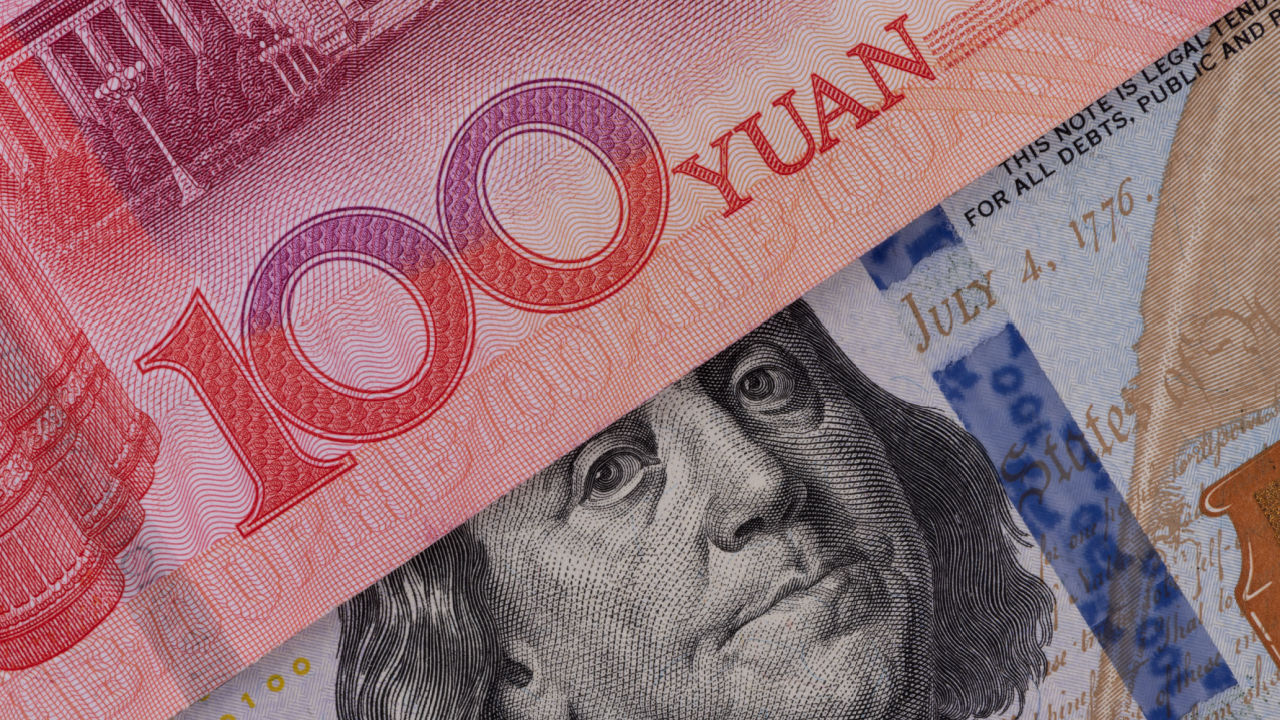Chinese Yuan Beats US Dollar as Top Choice for Settling Cross-Border Payments in March
China's push to internationalize its currency is paying off as the use of the Chinese yuan for international payments surged to a record high in March. The latest data from the State Administration of Foreign Exchange shows that the yuan was used to settle 48.4% of all international payments, surpassing the U.S. dollar. This marks a significant milestone for Beijing, which has been promoting the use of the yuan to reduce reliance on the dollar amid increasing geopolitical tensions. In March, the yuan was used to settle a record $549.9 billion in payments, up from $434.5 billion in February, while the usage of the dollar fell from 48.6% to 46.7%.
China's Efforts to Internationalize the Yuan
However, internationally, the usage of the Chinese yuan for settlements is minuscule when compared to the volumes settled in U.S. dollars, even with the implementation of sanctions. During March, the usage of the Chinese Yuan in global international payments rose to 4.5%, while the U.S. dollar accounted for 83.71% of all volume settled, according to data from SWIFT, a global banking payments system.
However, this marks an increase compared to the usage numbers of December, when the Chinese renminbi only accounted for 2.15% of all global payments, according to SWIFT’s renminbi tracker. This means that the yuan’s usage has more than doubled during Q1 2023.
This, and other recent trade agreements that have led countries like Russia and Brazil to settle their bilateral payments with China using national currencies or the Chinese yuan, have alarmed some analysts regarding the possible rise of a “bipolar” economic world.
Economist Nouriel Roubini recently stated that rivals of the U.S. would probably group around the yuan to propose it as an alternative to the U.S. dollar. In the same way, billionaire investor Ray Dalio noted the importance of the U.S. dollar in international trade is fading, thanks to the sanctions that the country has imposed on other countries.
However, the yuan still faces significant obstacles to becoming a truly global currency, including restrictions on its convertibility, concerns about China's economic and political stability, and competition from other major currencies like the euro and the yen.
 Language
Language
 Česky
Česky Dansk
Dansk Deutsch
Deutsch Ελληνικά
Ελληνικά Español
Español Eesti
Eesti Suomi
Suomi Français
Français Magyar
Magyar Italiano
Italiano Lietuvių
Lietuvių Latviešu
Latviešu Nederlands
Nederlands Português
Português Русский
Русский Slovenčina
Slovenčina Slovenščina
Slovenščina Svenska
Svenska

 Bitcoin [BTC]
Bitcoin [BTC] Ethereum [ETH]
Ethereum [ETH] Litecoin [LTC]
Litecoin [LTC] Dash [DASH]
Dash [DASH] Dogecoin [DOGE]
Dogecoin [DOGE] [SUM]
[SUM]